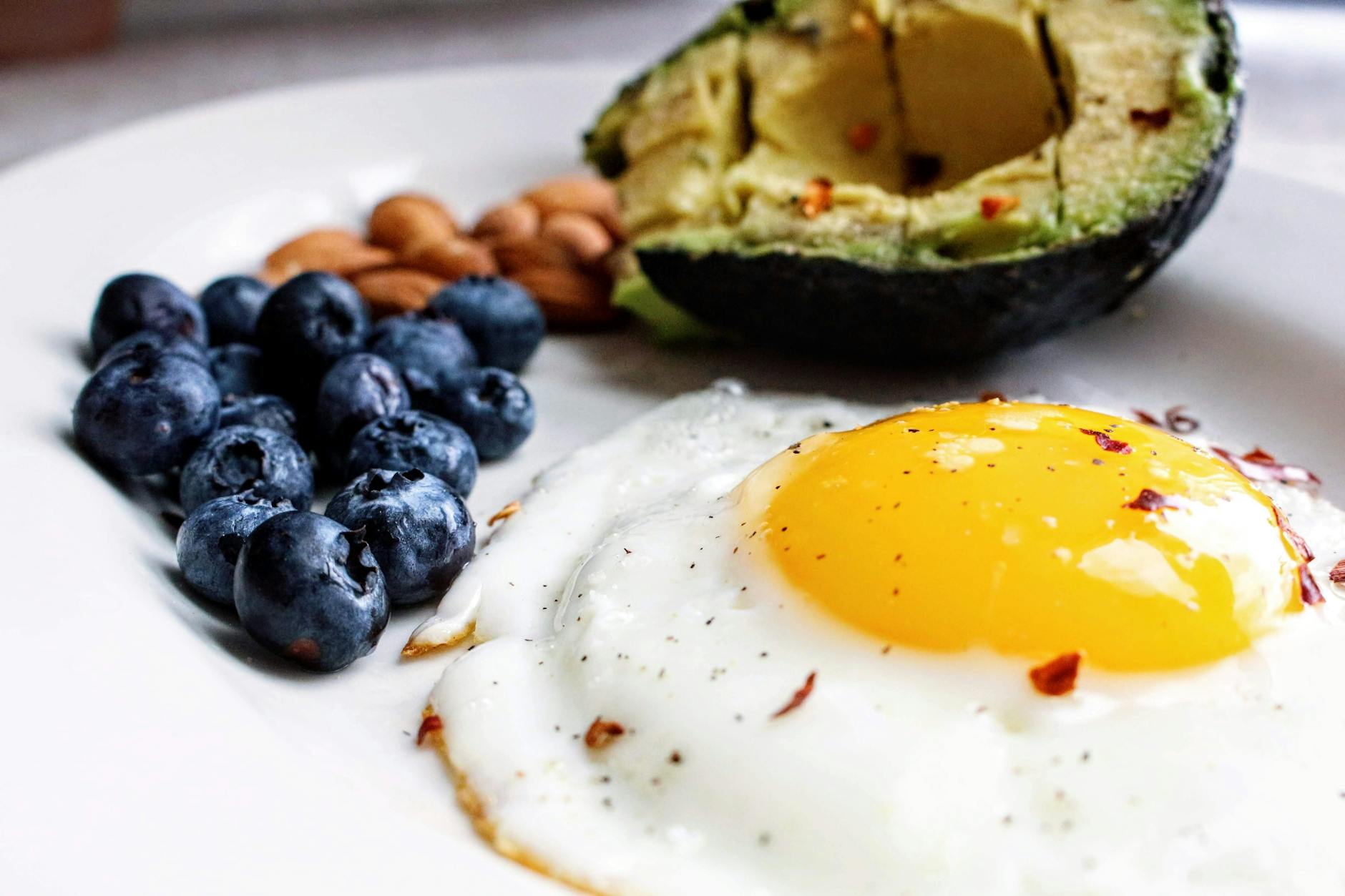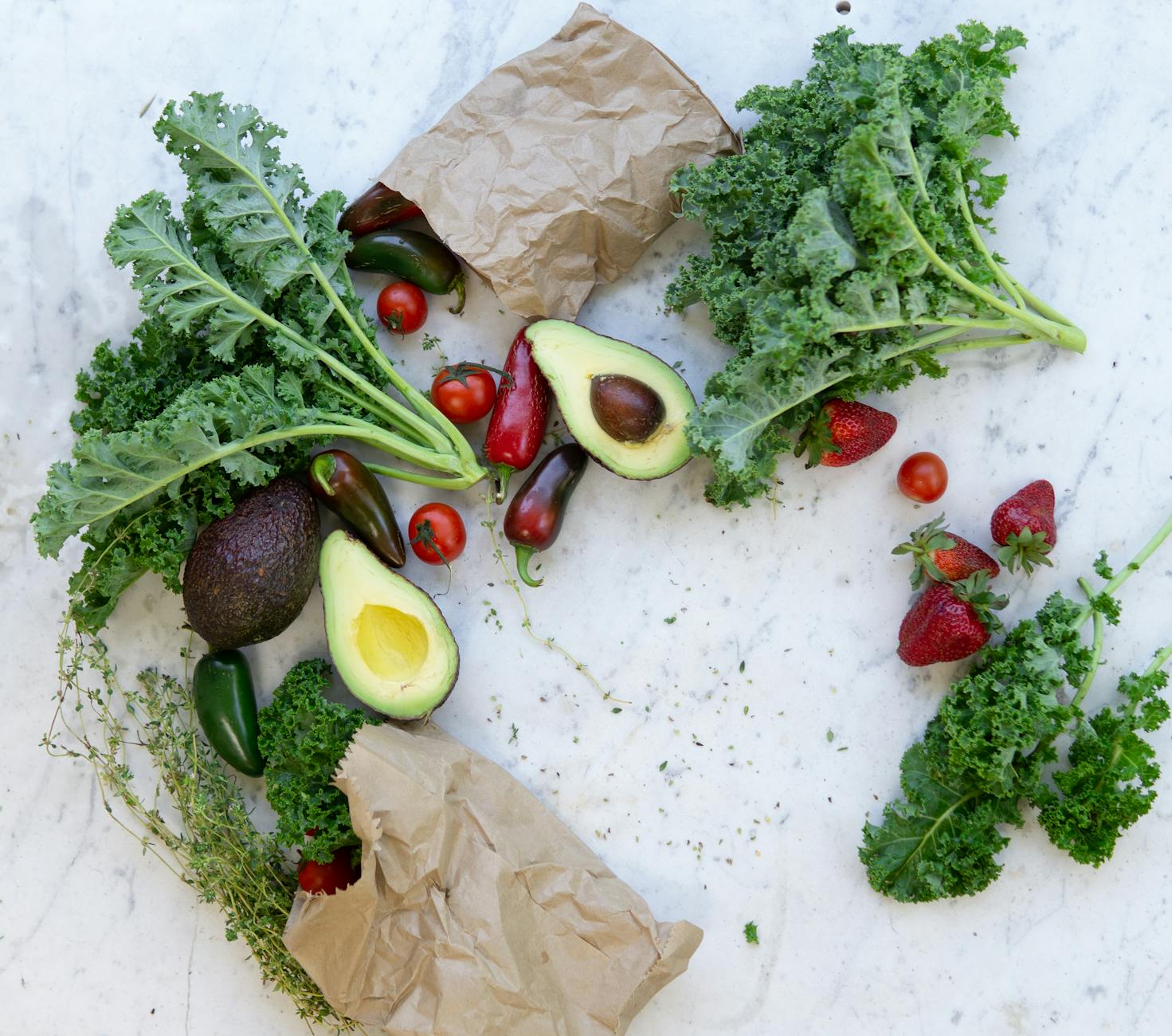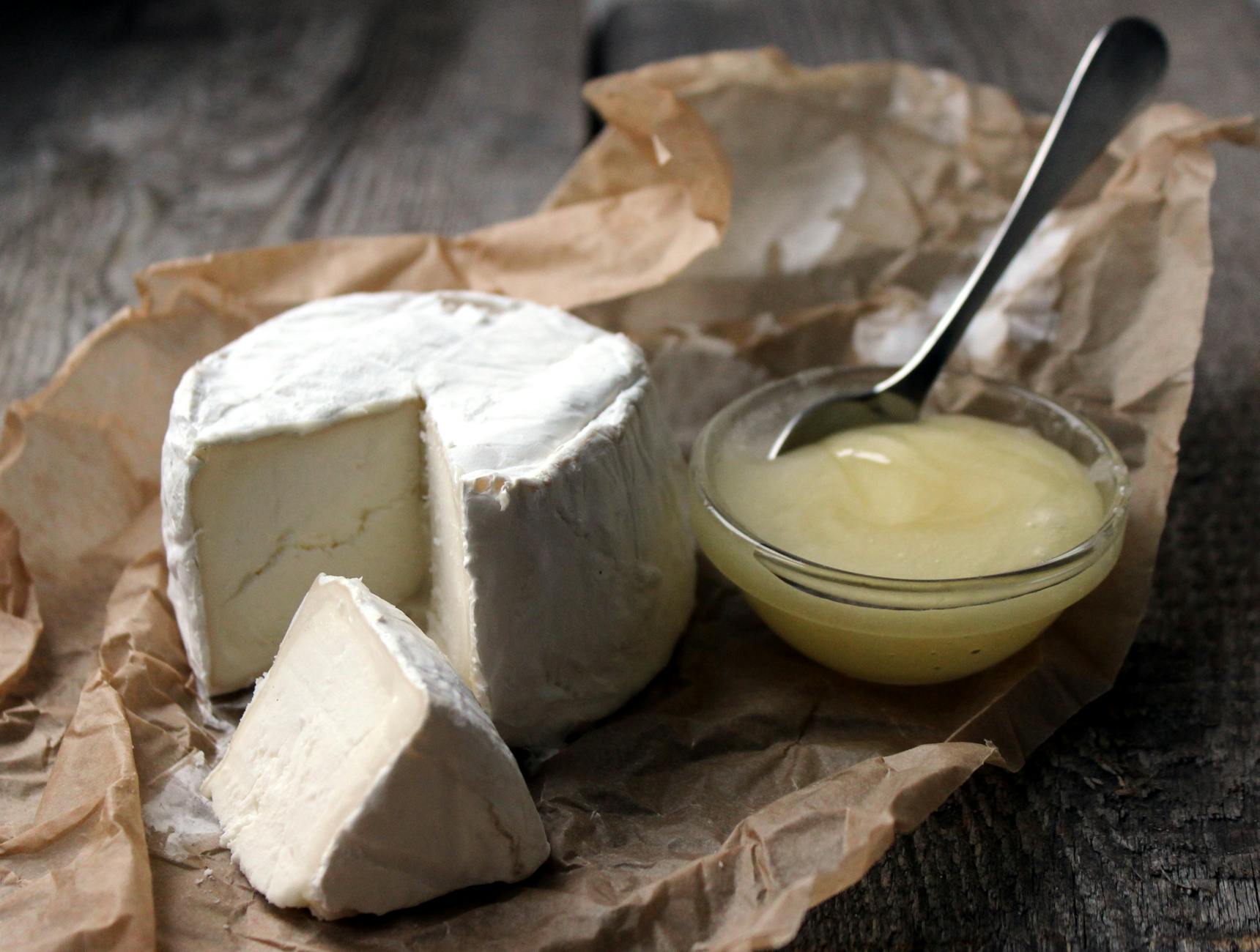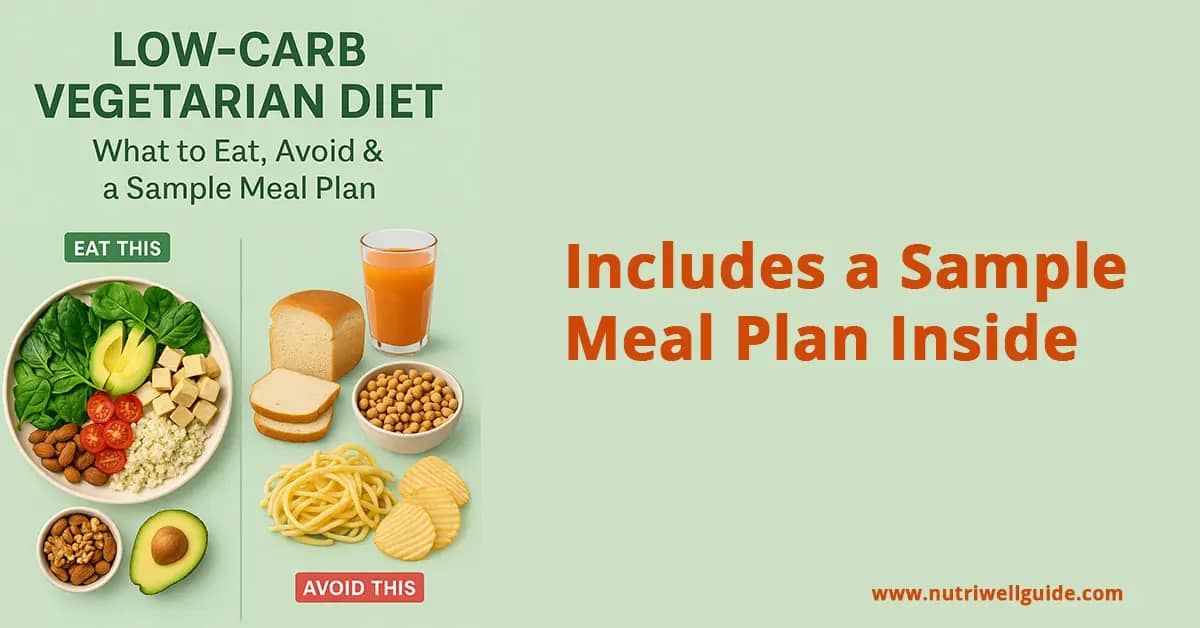
Ever been told you need carbs to survive, only to watch your friend thrive on keto? The truth is, a low-carb vegetarian diet isn’t just possible—it’s potentially powerful for your health.
You’re about to discover how to ditch the pasta while keeping your plant-based principles intact. No more choosing between your ethics and your waistline.
Think beyond the stereotype that vegetarians must load up on bread and rice. The secret lies in knowing which plants pack protein without the carb overload.
But here’s what most nutrition “experts” won’t tell you: the trickiest part isn’t finding low-carb veggie foods—it’s avoiding the hidden carb traps that derail your progress without you even realizing it.
- Why Low-Carb?
- what to eat on low carb vegetarian diet?
- Different Types of Vegetarians
- Dairy Products and Eggs Are Low in Carbs
Why Low-Carb?

Ever wondered why everyone’s going crazy about low-carb diets? It’s not just another food trend. For vegetarians looking to shed pounds or manage health conditions, cutting back on carbs can be a game-changer.
The Science Behind Carb Reduction
When you slash carbs, your body enters a metabolic state where it burns fat for fuel instead of glucose. This process, called ketosis, can supercharge weight loss efforts even without meat in the picture.
But it’s not just about dropping dress sizes. Low-carb vegetarian diets help stabilize blood sugar levels – crucial if you’re dealing with diabetes or insulin resistance. No more energy crashes at 3 PM!
👉 Read more: Top 13 Anti-Inflammatory Foods You Should Be Eating
Benefits Beyond the Scale
The perks go way beyond weight loss:
- Reduced inflammation: Many plant-based low-carb foods naturally fight inflammation
- Better brain function: Your brain loves healthy fats from avocados and nuts
- Improved digestion: Less processed carbs means happier gut bacteria
Who Should Consider Going Low-Carb?
A vegetarian low-carb approach works wonders if you:
- Have stubborn weight that won’t budge
- Experience blood sugar rollercoasters
- Deal with food cravings constantly
- Want more stable energy throughout the day
- Have certain health conditions like PCOS or metabolic syndrome
The beauty of this approach? You don’t have to go extreme. Even moderate carb reduction (100-150g daily) delivers benefits while keeping your plant-based lifestyle totally doable.
what to eat on low carb vegetarian diet?

A vegetarian low-carb diet focuses on non-starchy vegetables like spinach, cauliflower, and zucchini paired with protein sources such as eggs, cheese, tofu, and tempeh. Include healthy fats from avocados, olive oil, nuts, and seeds. Limit or avoid high-carb foods like bread, pasta, rice, and sugar. This approach maintains the plant-based lifestyle while keeping carbohydrates in check.
👉 Read more: 5 Healthy Smoothie Recipes for Breakfast
Different Types of Vegetarians

Lacto-Ovo Vegetarians
These are the most common type of vegetarians. They skip the meat, poultry, and fish but still enjoy dairy products like milk, cheese, and butter along with eggs. For someone starting a low carb vegetarian diet, this approach offers the most flexibility since eggs and cheese are protein-rich foods that can easily fit into a low carb meal plan.
Lacto Vegetarians
This group avoids meat, fish, poultry, and eggs but includes dairy products. They might find a low carb diet slightly more challenging than lacto-ovo vegetarians since they can’t rely on eggs as a protein source. However, cheese, Greek yogurt, and cottage cheese still provide excellent high-protein, low carb options.
Ovo Vegetarians
These folks eat eggs but skip meat, fish, poultry, and dairy products. On a low carb diet, eggs become their best friend – scrambled, boiled, in omelets, or as egg muffins. Without dairy, they need to focus more on plant-based proteins like tofu and tempeh to keep carbs low.
Vegans
Vegans avoid all animal products, including honey. This makes a low carb approach the most challenging, as many vegan protein sources like beans and lentils are higher in carbs. Success on a vegan low carb diet requires careful planning and often includes foods like tofu, tempeh, seitan, nuts, and seeds as protein sources.
Flexitarians
Not technically vegetarians, flexitarians primarily eat plant-based foods but occasionally include meat. This approach offers the most wiggle room for low carb eating, as they can supplement their diet with animal proteins when needed while still focusing on vegetable-forward meals most of the time.
Dairy Products and Eggs Are Low in Carbs

Dairy products and eggs are absolute game-changers for vegetarians looking to cut carbs while keeping meals satisfying. Unlike plant proteins that often come packaged with carbs, these animal-derived options deliver serious protein with minimal carb content.
Eggs: The Perfect Protein Package
Eggs might be the most versatile low-carb food in existence. With less than 1 gram of carbs per egg and about 6 grams of high-quality protein, they’re a vegetarian low-carb diet staple. They’re also packed with nutrients like choline, which supports brain health.
Morning scrambles, frittatas, or simple hard-boiled eggs make quick low-carb breakfasts. Or try cloud eggs – whipped egg whites with the yolk nestled in the center – for an impressive yet simple dish.
Cheese: Low in Carbs, High in Satisfaction
Most cheeses contain barely any carbs while delivering protein and fat that keeps hunger at bay. Harder cheeses like cheddar, parmesan, and swiss typically have fewer carbs than softer varieties.
Some low-carb cheese options include:
- Cheddar: 0.4g carbs per ounce
- Brie: 0.1g carbs per ounce
- Goat cheese: 0.6g carbs per ounce
- Feta: 1.2g carbs per ounce
Sprinkle cheese on vegetables, melt it into omelettes, or enjoy it with a few nuts for a quick snack.
👉 Read more: The Impact of Technology on Sleep and Well-being
Greek Yogurt and Cottage Cheese
Unsweetened Greek yogurt and cottage cheese deserve special mention. Greek yogurt contains roughly 5-8g carbs per cup while packing 20+ grams of protein. Cottage cheese offers similar benefits with about 6g carbs per cup.
Top them with a few berries and nuts for a complete meal that won’t spike your blood sugar. Just avoid flavored varieties – they’re often loaded with added sugars.
Low-Carb Friendly Plant Foods (For Both Vegetarians and Vegans)
Adopting a vegetarian or vegan low-carb diet doesn’t mean sacrificing variety or nutrition. Plenty of plant-based foods are naturally low in carbohydrates and perfect for maintaining energy levels while supporting weight loss or blood sugar control. Non-starchy vegetables like spinach, kale, cauliflower, zucchini, and bell peppers are excellent choices for daily meals. Healthy fats from avocados, olives, and coconut are not only low in carbs but also promote heart health. For protein, opt for tofu, tempeh, seitan, and unsweetened plant-based protein powders, all of which are suitable for vegans and vegetarians alike. Nuts and seeds such as chia, flax, almonds, and sunflower seeds offer both fiber and healthy fats, keeping you full longer. Including these low-carb plant foods ensures a balanced diet without relying on animal products, making your vegetarian or vegan low-carb journey both satisfying and sustainable.
How Many Carbs Should You Eat?
The ideal amount of carbs on a vegetarian low-carb diet can vary based on individual goals like weight loss, blood sugar control, or general health. In most cases, low-carb diets typically limit daily carb intake to 50–150 grams per day. For more aggressive goals like ketosis, some people aim for as low as 20–50 grams of net carbs per day. However, vegetarians need to balance carb restriction with sufficient intake of fiber, vitamins, and plant-based proteins. Tracking net carbs—total carbs minus fiber—is essential for maintaining the right balance. Always focus on low-glycemic, high-fiber plant foods like leafy greens, non-starchy vegetables, nuts, and seeds to stay within your carb target while meeting nutritional needs.
A Sample Menu For a Low-Carb Vegetarian Diet
Creating a satisfying and balanced vegetarian low-carb menu is easier than you think. By focusing on non-starchy vegetables, healthy fats, and plant-based proteins, you can enjoy delicious meals while keeping your carb intake low. Below is a sample day’s meal plan to give you inspiration. This menu is ideal for those aiming to stay within 50–100 grams of carbs per day and is rich in fiber, antioxidants, and plant-based nutrients.
🥗 Sample Low-Carb Vegetarian Day Menu
Breakfast:
– Scrambled eggs with spinach and feta (or tofu scramble for vegans)
– 1/2 avocado on a slice of low-carb almond bread
– Black coffee or green tea
Snack:
– Handful of almonds or walnuts
– 1 boiled egg (or roasted chickpeas for vegans)
Lunch:
– Zucchini noodles (zoodles) with pesto sauce and grilled tofu
– Mixed green salad with olive oil & lemon dressing
Snack:
– Celery sticks with natural peanut butter
– Herbal tea
Dinner:
– Cauliflower rice stir-fry with mushrooms, broccoli, bell peppers, and tempeh
– Cucumber and tomato side salad
Optional Dessert (Low-Carb):
– Chia pudding made with unsweetened almond milk and stevia
This sample menu proves that a low-carb vegetarian lifestyle can be both nutritious and satisfying without relying on meat or high-carb grains.
Take Home Message
A vegetarian low-carb diet can be a powerful way to manage weight, balance blood sugar, and support overall health—without sacrificing your plant-based lifestyle. By focusing on whole, unprocessed, low-carb plant foods like leafy greens, nuts, seeds, healthy fats, and plant-based proteins, you can meet your nutritional needs while keeping carbs in check. Whether your goal is fat loss, better energy, or improved wellness, this diet offers flexibility and sustainability. Always listen to your body, track your carb intake, and consult with a nutritionist if needed to personalize your plan.
Adopting a low-carb vegetarian lifestyle isn’t just a trend—it’s a smart, science-backed choice for long-term health.
Conclusion
Switching to a vegetarian low-carb diet is not only achievable—it’s highly beneficial for those looking to improve their health while maintaining a plant-based lifestyle. By choosing low-carb vegetables, plant-based proteins, and healthy fats, you can enjoy balanced meals that support weight loss, stable energy, and overall wellness. The key is to plan mindfully, stay informed about net carbs, and focus on whole, nutrient-dense foods. Whether you’re just starting or looking to optimize your current eating habits, this approach can help you feel your best—naturally and sustainably.
| Related Keyword | Article Title |
|---|---|
| anti-inflammatory foods | Top 13 Anti-Inflammatory Foods You Should Be Eating |
| healthy smoothie breakfast | 5 Healthy Smoothie Recipes for Breakfast |
| technology and sleep | The Impact of Technology on Sleep and Well-being |

